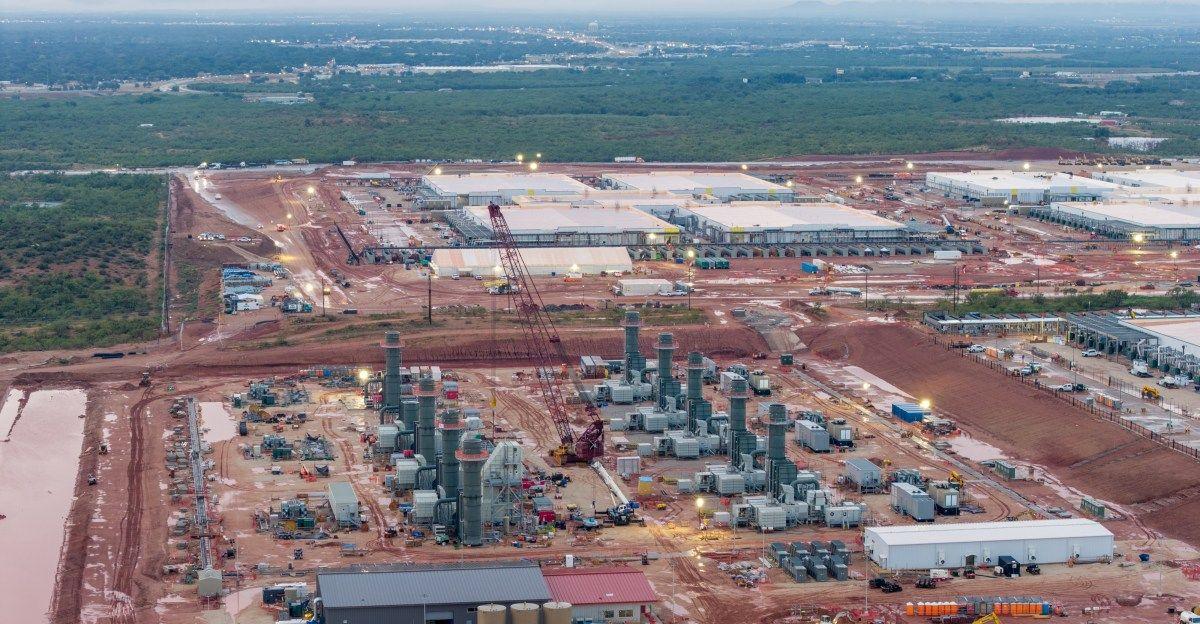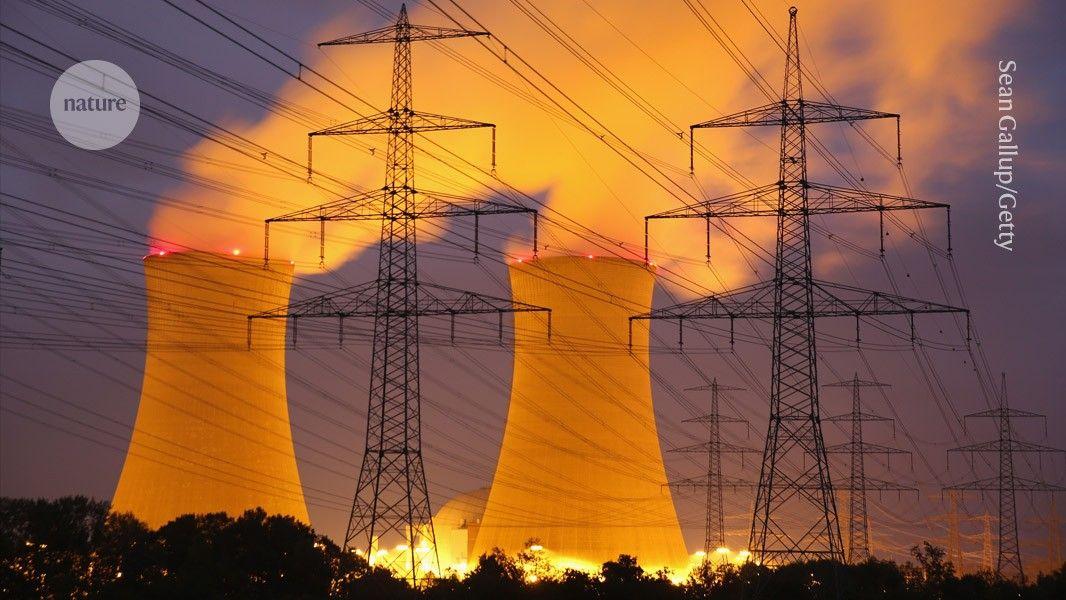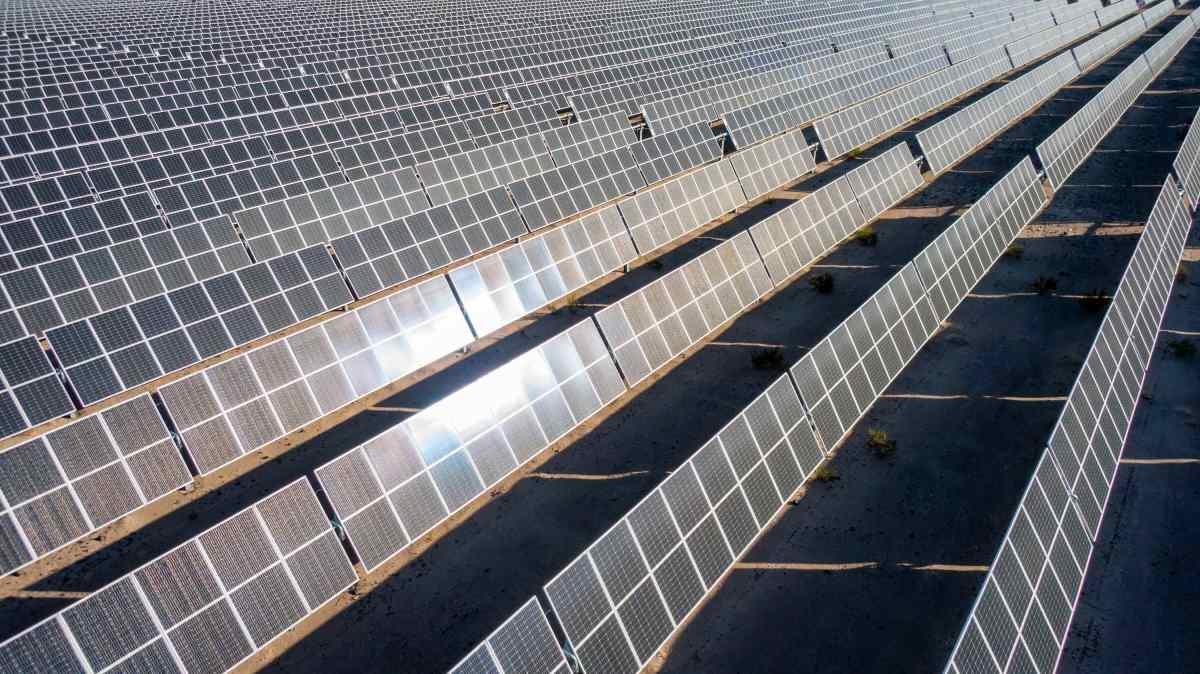Microsoft Considers Natural Gas for AI Data Centers Amid Growing Energy Demands
3 Sources
3 Sources
[1]
Microsoft says natural gas needed to keep up with AI
Microsoft says there is plenty of wind and solar to power datacenters in the US, but it is still eyeing natural gas generation as it juggles the growing energy needs of AI with its own net-zero commitments. The Redmond tech biz has continued to pour investment into scaling up its infrastructure to support AI. President Brad Smith said in January that it would spend $80 billion this year on what he called a "golden opportunity." The rapid expansion of bit barns from Microsoft and others has, however, created problems in accessing enough energy to power them all, coupled with warnings that their energy requirements could expand 160 percent by 2027, exceeding the ability of utility providers to keep pace. At the CERAWeek Global energy conference in Houston this week, Microsoft indicated there was plenty of potential for wind and solar expansion in the US, but conceded it is "open" to deploying natural gas with carbon capture technology to meet its energy requirements. According to separate reports, VP for Energy Bobby Hollis said renewables have an important role to play in the energy supply mix, at least for places where this makes sense - in states where there is plenty of sunshine or wind for electricity generation. However, he also claimed that Microsoft has "always been cognizant" that fossil fuels would not disappear as fast as everyone hoped, that renewables alone are not enough to meet the needs of datacenters, and that the company sees natural gas as the near-term solution to meeting its energy needs. In this, Hollis was following the lead of US Secretary of Energy Chris Wright, who earlier in the week delivered a speech at the same event promoting natural gas for generating electricity and criticizing the Biden administration's "irrational quasi-religious policies" on climate change. "The Trump administration will treat climate change for what it is, a global physical phenomenon that is a side effect of building the modern world," Wright said, claiming that "everything in life involves trade-offs," and noting that he has been called a climate change denier. Microsoft previously thought differently. It made commitments in 2020 to be carbon negative by 2030, meaning the company would remove more carbon from the atmosphere than it emits. The company was reiterating its commitment to this as recently as last December, when it posted a blog on its "bold commitment and progress." This states that by 2025, "Microsoft aims to power its datacenters and operations with 100 percent renewable energy." The latter seems to have gone out the window if Hollis is talking of using natural gas to power bit barns. The company had in any case disclosed last year that it actually increased its CO emissions by nearly 30 percent since 2020, mostly from the construction and provisioning of more datacenters to meet AI demand. The Trump administration will treat climate change for what it is, a global physical phenomenon that is a side effect of building the modern world At the time, Hollis argued that AI's benefits will outweigh its environmental impact, stating: "We fundamentally believe that the answer is not to slow down the expansion of AI but to speed up the work needed to make it more environmentally friendly." For context, Microsoft isn't the only datacenter operator turning to fossil fuels to help keep the lights on. Last year, Schneider Electric advised that on-site deployments of gas-powered turbines were the best short-term answer for bit barns to cover any shortfall in supply from the electricity grid. Also last year, it was even revealed that the need for energy to drive those bit barns is prolonging the life of coal-fired power plants in some areas of the US. ®
[2]
Microsoft is open to using natural gas to power AI data centers to keep up with demand
HOUSTON -- Microsoft is open to deploying natural gas with carbon capture technology to power artificial intelligence data centers, the technology company's vice president of energy told CNBC. "That absolutely would not be off the table," Bobby Hollis said. But the executive said Microsoft would consider natural gas with carbon capture only if the project is "commercially viable and cost competitive." Oil and gas companies have been developing carbon capture technology for years, but the industry has struggled to launch it at a commercial scale due to the high costs associated with such projects. The technology captures carbon dioxide emissions from industrial sites and stores them deep underground. Microsoft has ambitious goals to address climate, aiming to match all of its electricity consumption with carbon-free energy by 2030. The tech company has procured more than 30 gigawatts of renewable power in pursuit of that goal. But the tech sector has come to the conclusion that renewables alone are not enough to power the demanding power needs of data centers. Microsoft turned to nuclear power last year, signing a deal to support the restart of Three Mile Island through an agreement to purchase electricity from the currently shuttered plant. But it's unlikely that the U.S. will build a significant amount of additional unclear power until the 2030s. Data center developers increasingly see natural gas as near-term power solution despite its carbon-dioxide emissions. The Trump administration is focused on boosting natural gas production. Energy Secretary Chris Wright said Monday that renewable power cannot replace the role of gas in producing electricity. "We've always been cognizant that fossil will not disappear as fast as we all would hope," Hollis said. "That being said, we knew natural gas is very much the near-term solve that we're seeing, especially for AI deployments." Exxon Mobil and Chevron announced last December that they are entering the data center space with plans to develop natural gas plants with carbon capture technology. Chevron struck an agreement with gas turbine manufacturer GE Vernova in January in build gas plants for data centers "with the flexibility to integrate" carbon capture and storage technology. Hollis declined to say whether Microsoft is having conversations with the oil majors. The executive said the tech company is having "discussions across the board with all of those technologies." President Donald Trump told the World Economic Forum in January that he will use emergency powers to expedite the construction of power plants for data centers. Trump said the data centers can use whatever fuel they want. Chevron and GE Vernova announced their plan to build gas plants for data centers days after Trump's remarks. "We're just glad to see that there's a focus on accelerating schedules to meet what we view as a pretty critical need," Hollis said when asked about the Trump administration's plans. But deploying natural gas faces its own challenges. The cost of new natural gas plants has tripled and the line to build plants now extends to 2030, NextEra CEO John Ketchum said Monday. NextEra is the largest developer of renewables in the U.S. but also has gas assets. "Renewables are ready to go right now because they've been up and running," Ketchum said at the conference. "It's cheaper and it's available right now unless you already have a turbine on order or that's already been permitted." Ketchum said nuclear is unlikely to be a power solution until 2035. NextEra is considering restarting the mothballed Duane Arnold nuclear plant in Iowa.
[3]
Microsoft Eyes Natural Gas As Potential Power Source For AI Data Centers Provided It is 'Commercially Viable' - Entergy (NYSE:ETR), Amazon.com (NASDAQ:AMZN)
As the need for power in AI data centers escalates, Microsoft Corporation MSFT is considering the possibility of utilizing natural gas. What Happened: Microsoft's Vice President of Energy, Bobby Hollis, told CNBC that the tech giant is considering the use of natural gas with carbon capture technology to power its AI data centers. However, this option will only be explored if it proves to be "commercially viable and cost competitive." Despite the hefty costs associated with carbon capture technology, it has been under development by oil and gas companies for several years. The technology is designed to capture industrial carbon dioxide emissions sites and store them deep underground. Microsoft has set bold climate targets, striving to offset its entire electricity usage with carbon-free energy by 2030. However, the tech sector has realized that renewables alone cannot fulfill the high power requirements of data centers. Last Year, Microsoft turned to nuclear power and signed a deal to support the restart of Three Mile Island. However, the U.S. is unlikely to expand nuclear power significantly before the 2030s. Despite its carbon dioxide emissions, natural gas is increasingly seen as a near-term power solution by data center developers. Energy Secretary, Chris Wright stated on Monday that renewable energy cannot fully substitute gas in electricity generation. SEE ALSO: Alibaba's Joseph Tsai Says 'Everyone Is Concerned About Tariffs,' As He Expects Levies On Chinese EVs Why It Matters: By considering natural gas for powering data centers, Microsoft is following Meta Platforms META and Amazon AMZN who have partnered with Entergy Corporation ETR subsidiaries in Louisiana and Mississippi, respectively, for the same reason. This also represents a larger effort by U.S. power companies to expand natural gas infrastructure to meet the rising electricity demand driven by AI. A report released by the Institute for Energy Economics and Financial Analysis (IEEFA) in January highlights that utility providers in Virginia, Georgia, North Carolina, and South Carolina intend to develop a total of 20 GW of new natural gas generation by 2040, driven mainly by the growing demand from data centers. READ MORE: Apple Doubles Down On Vision Pro With Metallica Concert Experience: But Can Rock Legends Save A $3,499 Headset That's Already Being Scaled Back? Image via Shutterstock Disclaimer: This content was partially produced with the help of AI tools and was reviewed and published by Benzinga editors. AMZNAmazon.com Inc$198.090.76%Stock Score Locked: Want to See it? Benzinga Rankings give you vital metrics on any stock - anytime. Reveal Full ScoreEdge RankingsMomentum80.19Growth3.94Quality83.15Value48.71Price TrendShortMediumLongOverviewETREntergy Corp$82.38-%METAMeta Platforms Inc$615.001.53%MSFTMicrosoft Corp$382.680.59%Market News and Data brought to you by Benzinga APIs
Share
Share
Copy Link
Microsoft is exploring the use of natural gas with carbon capture technology to power its AI data centers, balancing the increasing energy needs of AI with its net-zero commitments. This shift comes as the tech industry realizes renewables alone may not meet the power demands of expanding data centers.

Microsoft's Shift Towards Natural Gas for AI Data Centers
Microsoft, a leader in the tech industry, is considering a significant shift in its energy strategy to power the growing demands of AI data centers. The company is now open to deploying natural gas with carbon capture technology, marking a departure from its previous focus on renewable energy sources
1
.Balancing AI Demands with Climate Commitments
Microsoft's Vice President of Energy, Bobby Hollis, stated at the CERAWeek Global energy conference that while renewables play an important role, they alone are not sufficient to meet the energy needs of data centers
2
. This stance comes despite Microsoft's 2020 commitment to be carbon negative by 2030 and its aim to power data centers with 100% renewable energy by 20251
.The AI Energy Dilemma
The rapid expansion of AI infrastructure has created significant energy challenges. Warnings suggest that data center energy requirements could expand by 160% by 2027, potentially outpacing utility providers' capacity
1
. This surge in demand has led tech companies to explore various energy sources beyond renewables.Natural Gas as a Near-Term Solution
Hollis emphasized that natural gas is seen as a near-term solution, especially for AI deployments. However, he clarified that Microsoft would only consider natural gas with carbon capture if it proves "commercially viable and cost competitive"
2
. This approach aligns with the broader tech sector's realization that renewables alone may not suffice for the demanding power needs of data centers.Political and Industry Context
The shift towards natural gas aligns with the Trump administration's energy policies. Energy Secretary Chris Wright criticized the Biden administration's climate change policies and promoted natural gas for electricity generation
1
. This political backdrop has influenced the energy landscape for tech companies.Related Stories
Industry-Wide Trend
Microsoft isn't alone in this shift. Other tech giants like Meta and Amazon have partnered with energy companies to explore natural gas options for their data centers
3
. A report by the Institute for Energy Economics and Financial Analysis (IEEFA) indicates that utility providers in several U.S. states plan to develop 20 GW of new natural gas generation by 2040, largely driven by data center demand3
.Challenges and Alternatives
While natural gas is being considered, it faces its own challenges. The cost of new natural gas plants has tripled, with construction timelines extending to 2030
2
. Microsoft has also explored other alternatives, such as nuclear power, signing a deal to support the restart of Three Mile Island2
. However, significant expansion of nuclear power in the U.S. is unlikely before the 2030s.Environmental Concerns and Carbon Capture
To address environmental concerns, Microsoft is considering natural gas in conjunction with carbon capture technology. This technology, which captures and stores carbon dioxide emissions underground, has been under development by oil and gas companies but has struggled to achieve commercial viability due to high costs
2
.As the AI industry continues to grow, the balance between technological advancement and environmental responsibility remains a critical challenge for tech giants like Microsoft. The company's exploration of natural gas reflects the complex realities of meeting escalating energy demands while striving to maintain commitments to sustainability.
References
Summarized by
Navi
[1]
Related Stories
AI boom drives US to triple natural gas power projects as data centers fuel global surge
29 Jan 2026•Business and Economy

AI's Energy Dilemma: Data Centers Push Power Grids to the Limit
15 Oct 2024•Technology

AI-Driven Data Center Energy Consumption Set to Double by 2030, Raising Climate Concerns
11 Apr 2025•Technology

Recent Highlights
1
Pentagon threatens to cut Anthropic's $200M contract over AI safety restrictions in military ops
Policy and Regulation

2
ByteDance's Seedance 2.0 AI video generator triggers copyright infringement battle with Hollywood
Policy and Regulation

3
OpenAI closes in on $100 billion funding round with $850 billion valuation as spending plans shift
Business and Economy





